Mercury Project
Overview
Consortium Partners
The Mercury Project: Health Ambassadors in sub-Saharan Africa is a research collaboration between Evidence in Governance and Politics (EGAP), at the University of California, Berkeley, Partnership for African Social and Governance Research (PASGR) in Nairobi, and Centre de Recherche et d’Action pour la Paix (CERAP) in Abidjan.
The project studies strategies to increase public fluency and confidence in reliable scientific information about COVID-19 and other routine vaccinations through a “health ambassadors” outreach initiative. The intervention consists of a “health ambassadors” program in which ambassadors trained on engaging individuals about vaccine risks and benefits and will proactively engage households and offer a direct and private opportunity to discuss concerns. The randomized controlled trials will be implemented in four Anglophone and Francophone countries in sub-Saharan Africa – Côte d’Ivoire, Malawi, Senegal, and Zimbabwe.
The first part of the project will consist of qualitative research activities including focus groups and interviews with authorities and community leaders to identify issues that might limit vaccine takeup where it remains low. After the qualitative research is conducted, a randomized controlled trial (RCT) will be implemented to test a replicable and scalable health ambassadors outreach strategy. The RCT will evaluate the effects of private conversations with trained vaccine ambassadors and how this strategy might differ from mass media public outreach to combat misinformation and promote uptake.
Learn more about the initiative:
Press release: https://www.ssrc.org/programs/the-mercury-project/grantee-announcement/
Project website: https://www.ssrc.org/programs/the-mercury-project/mercury-project-grantees/
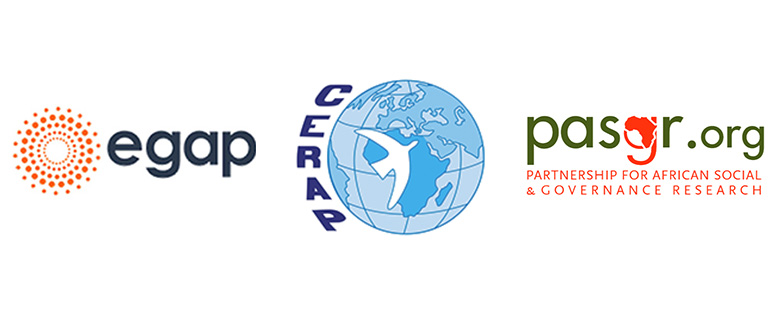
The Partnership for African Social and Governance Research (PASGR) is an independent, non-partisan Pan-African not-for-profit organization established in 2011 and located in Nairobi, Kenya. Currently engaged in more than 26 African countries, PASGR works to enhance research excellence in governance and public policy that contributes to the overall wellbeing of women and men in Africa. In partnership with individual academics and researchers, higher education institutions, research think tanks, civil society organizations, business and policy communities both in the region and internationally, PASGR supports the production and dissemination of policy relevant research; designs and delivers suites of short professional development courses for researchers and policy actors; and facilitates the development of collaborative higher education programmes.
The Centre of Research and Action for Peace (CERAP), based at the University Jesuite, is a leading research center and higher education institution in Abidjan, Côte d’Ivoire. Established in 1962, CERAP’S mission is to contribute to the building of a world of justice and peace through education and community outreach. It offers both undergraduate and graduate academic programs. CERAP has implemented projects on reconciliation and violence mitigation since the Ivorian political crisis. CERAP is also home to a publishing house, Editions du CERAP, which contributes to the promotion of African writers.
Evidence in Governance and Politics (EGAP), based at the University of California, Berkeley, is a global research, evaluation, and learning network in governance and politics with over 240 researchers and practitioners in 33 countries. EGAP promotes knowledge accumulation, innovation, and evidence-based policy in various governance domains through researcher-practitioner collaborations. EGAP provides training for both researchers and practitioners, with regional focus in sub-Saharan Africa and Latin America.
Goals & Outcomes
The aim of the collaborative project will be to generate replicable and scalable insights on using a health ambassadors strategy to increase public fluency and confidence in scientific health information and COVID-19 vaccine uptake. A secondary goal will be to offer a model for international, interdisciplinary research collaboration operating at the highest standards of rigor. Drawing on the past examples from EGAP’s Metaketa Initiative, all aspects of the research will be produced on the basis of open and transparent collaboration and the research will be conducted in partnership with relevant local authorities and civil society. A third goal will be to build up locally-rooted institutions, individual researchers’ capacities, and expert networks in Sub-Saharan Africa to facilitate future collaborative work.
Case Selection/Countries
Intra-regional and cross-regional country comparisons will provide valuable insights into public health systems as well as contextual level factors of vaccine hesitancy. The four countries selected have a high degree of comparability and urgency in terms of confirmed cases, mortality rates, scale to population, and low rates of vaccination, relative to other countries across the continent. These countries contain sites in which EGAP, PASGR, and CERAP members collectively have extensive established research, civil society, and policy networks.
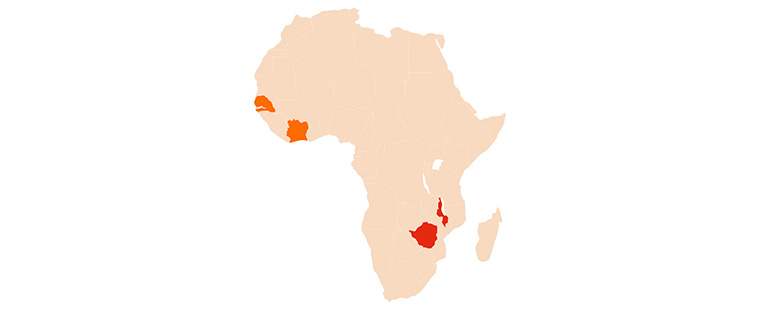
Red: Malawi and Zimbabwe, East/Southern Africa (Anglophone)
Research Team
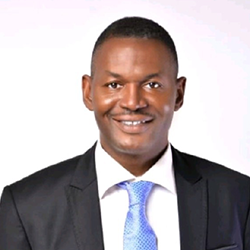
Emmanuel Remi Aiyede is Professor of Political Institutions, Governance and Public Policy in the Department of Political Science, University of Ibadan. He is a Fellow of the Pan-African Scientific Research Council (PASRC) and the Head, Department of Political Science (01 August 2020-31 July 2022). He has been involved with PASGR in promoting innovative pedagogy in Africa, development of the curriculum for the Master of Research and Public Policy programme and the Ph.D. programme in Public Policy universities across Africa in 2020.
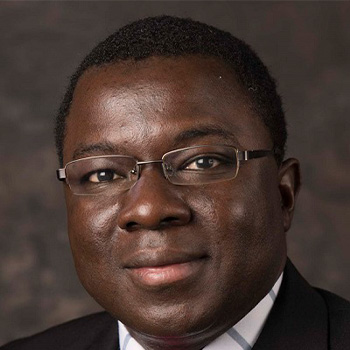
Arsene Brice Bado is Professor of Political Science and Research Director at CERAP, at the Universite Jesuite in Abidjan, Cote d’Ivoire. He is the EGAP West Africa Regional Hub lead on activities related to democracy and conflict in West Africa as well as methods training for Francophone West African researchers. His research focuses on democracy, ethnic pluralism, electoral processes in conflict-torn societies, and foreign aid in Africa.
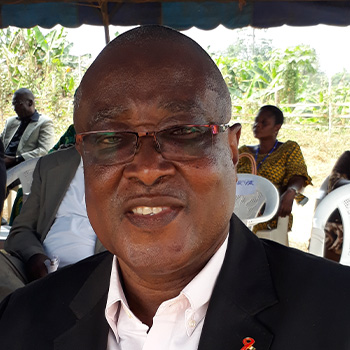
Yapo Félix Boa is a Professor Emeritus of Medicine specializing in neurology at the Université Félix Houphouët Boigny. Previously, he served as the Director-General of the University Hospital Center (CHU) in Bouake, Côte d’Ivoire, and Director General of the Ministry of Health. Earlier in his career, he led a research project on sleeping sickness in Daloa, Côte d’Ivoire. Boa has also held the position of Chairman of the National Committee of Experts for Polio Eradication since 2002.
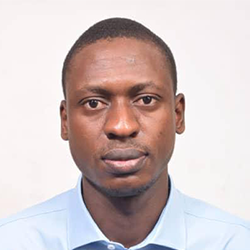
Horace Mahugnon Akim Gninafon is a PhD student in economics at the University Laval. He holds a Masters in Mathematics, Economics and Statistics from the African School of Economics. His research interests include development economics, education and health economics, and public policy evaluation. Gninafon is the 2022-2023 predoctoral fellow at EGAP.

Paul Kawale is a Lecturer in Public Health at the College of Medicine at Kamuzu University of Health Sciences. He supervises and conducts research on global health policy including mixed-methods projects exploring HPV vaccination among boys and adults, mental health among professional men, and digital health payments during the 2022 polio vaccination campaign. He earned his PhD in Global Health from the University of Edinburgh and a Master of Public Health from the University of Malawi.

Fortunate Machingura is the Head of Research on Key Populations at the Centre for Sexual Health and HIV AIDS Research (CeSHHAR Zimbabwe) and a member of the WHO 2022 technical working group on routine HIV surveillance. In addition, she is a Research Fellow at the Liverpool School of Tropical Medicine in the Department of International Public Health and a visiting lecturer at the University of Zimbabwe and Great Zimbabwe University. Machingura holds a PhD in Development Policy and Management from the University of Manchester.
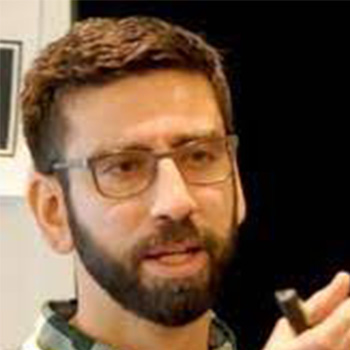
Cyrus Samii is Associate Professor in the Wilf Family Department of Politics of New York University and Executive Director of EGAP. He writes and teaches on quantitative social science methodology, with an emphasis on causal inference. He is a prominent expert on the design of quantitative field research and field experiments. He also conducts applied research on governance in contexts where formal institutions are weak, the political economy of development, and social, economic, and psychological causes of violent conflict.
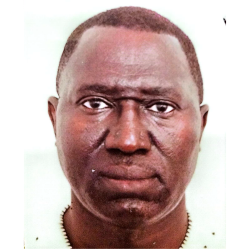
Samba Cor Sarr is the head of the Research Division at the Directorate of Planning, Research and Statistics at the Ministry of Health and Social Action (MSAS) of Senegal. He is also the permanent secretary of the National Ethics Committee for Health Research (CNERS) of Senegal and a member of the National Committee for the Management of Epidemics (CNGE).
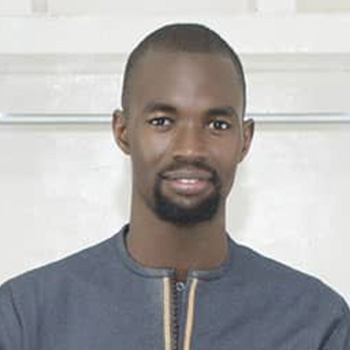
Mame Mor Anta Syll is an assistant lecturer in behavioral economics at the Université Gaston Berger of Saint-Louis in Senegal. He most recently served as an impact evaluation coordinator in different research initiatives including the project, “Improving Youth Employability through Informal Apprenticeship,” implemented by the Ministry of Employment, Apprenticeship and Vocational Training in Senegal with the World Bank’s support. Mame Mor holds a PhD in Economics from the University Gaston Berger of Saint-Louis and the University of Orleans in France. Syll was a Visiting Fellow at EGAP in Spring 2022.
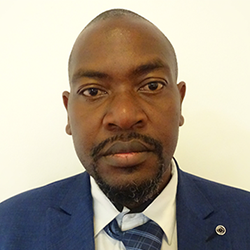
Mavuto Thomas is the Chief Health Education Officer and the lead for health promotion and communication under Ministry of Health, Malawi. He is an experienced Environmental Health Officer and Public Health Specialist with a demonstrated history of working in the hospital & health care industry. He is skilled in Epidemiology, Infectious Diseases, Public Policy, Health Promotion, and Health Economics.
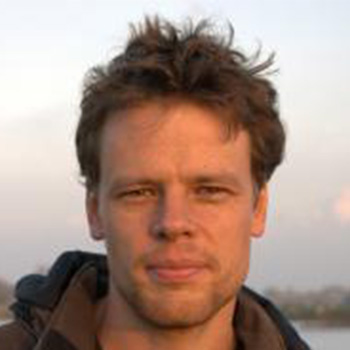
Maarten Voors is Associate Professor at the Development Economics Group, Wageningen University, The Netherlands. His research focuses on the role of incentives, institutions and behavior in the development process. Recent projects include field experiments on institutions, structural transformation, rural electrification and the consequences of COVID-19 in Sierra Leone. He is a co-author of the Nature article on vaccine acceptance and hesitancy in multiple LMIC contexts. Voors was the inaugural EGAP Trainings Director and launched EGAP’s Learning Days workshops.